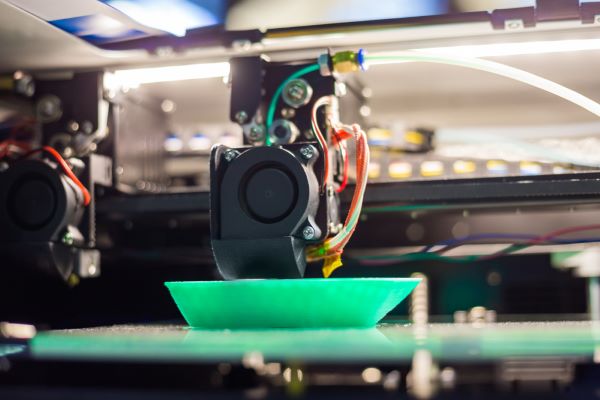Scientists are combining nanotechnology and 3D printing with natural plant compounds to create better bandages that will treat burns and wounds more effectively.
Dr Sara Cordeiro, senior lecturer in Pharmaceutical Sciences at De Montfort University Leicester (DMU), will work alongside Dr Henrique Rodrigues Marcelino at the Universidade Federal da Bahia, Brazil, on the project which has secured funding from the prestigious Royal Society fund.
Over the next three years they will collaborate on creating a dressing made using a special molecule, C-phyocyanin, extracted from Amazonian algae which has anti-inflammatory, analgesic and wound healing properties.

They will use 3D printing to make these dressings, which can be used in remote clinics as well as larger hospital.
As 3D printers are small and easily transportable, they can be used to print dressings in isolated rural areas of Brazil, such as the tropical rainforests of the Amazon basin, where healthcare can be harder to come by. 3D printing also opens up the possibility of creating dressings of specific size and shape so they not only avoid waste, but also fit individual wounds better and improve healing thanks to the addition of the active healing agent absent in conventional dressings.
“I am really excited about the potential of this work and it’s going to be an incredibly interesting field to explore,” said Dr Cordeiro. “This is not just about advancing medical care but there are so many positive effects that we could have in helping improve access to treatments.”
The Royal Society’s International Science Partnerships Fund grant aims to enhance research and healthcare capacity in Brazil. The country has to import much of its medical supplies so having the capacity to print wound dressings in an affordable and simple way would help address some of this challenge.
It also supports early career researchers such as Dr Cordeiro and Dr Marcelino, who first met in Spain during post-doctoral study. Dr Marcelino will use his expertise in extracting molecules from the algae an encapsulating them in nanoparticles, while Dr Cordeiro’s work focuses on designing a gel for 3D printing that will hold the molecule and can slowly release its properties into the wound, speeding up healing.
The fund also aims to foster long-term growth in Brazil’s healthcare and pharmaceutical sectors through research, education, and collaboration. Students from UK and Brazilian universities will take part in exchange work with both academics and the two institutions will grow research networks.
Posted on Wednesday 22 January 2025